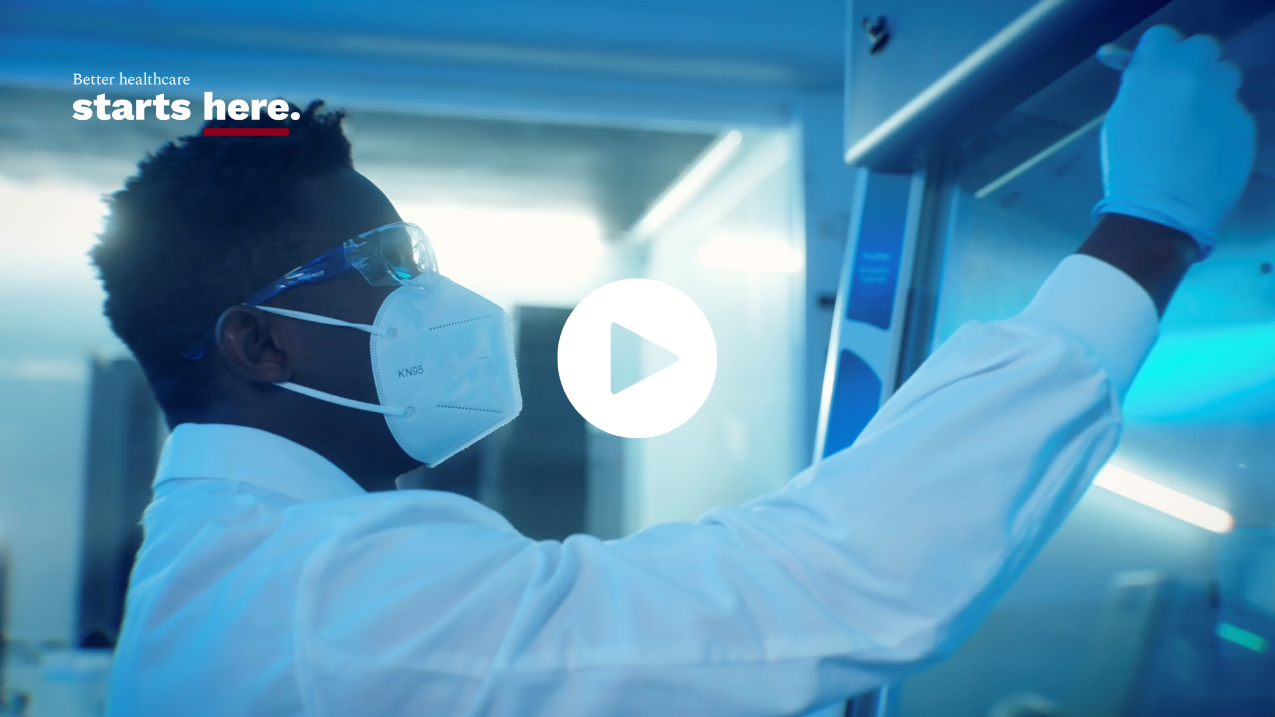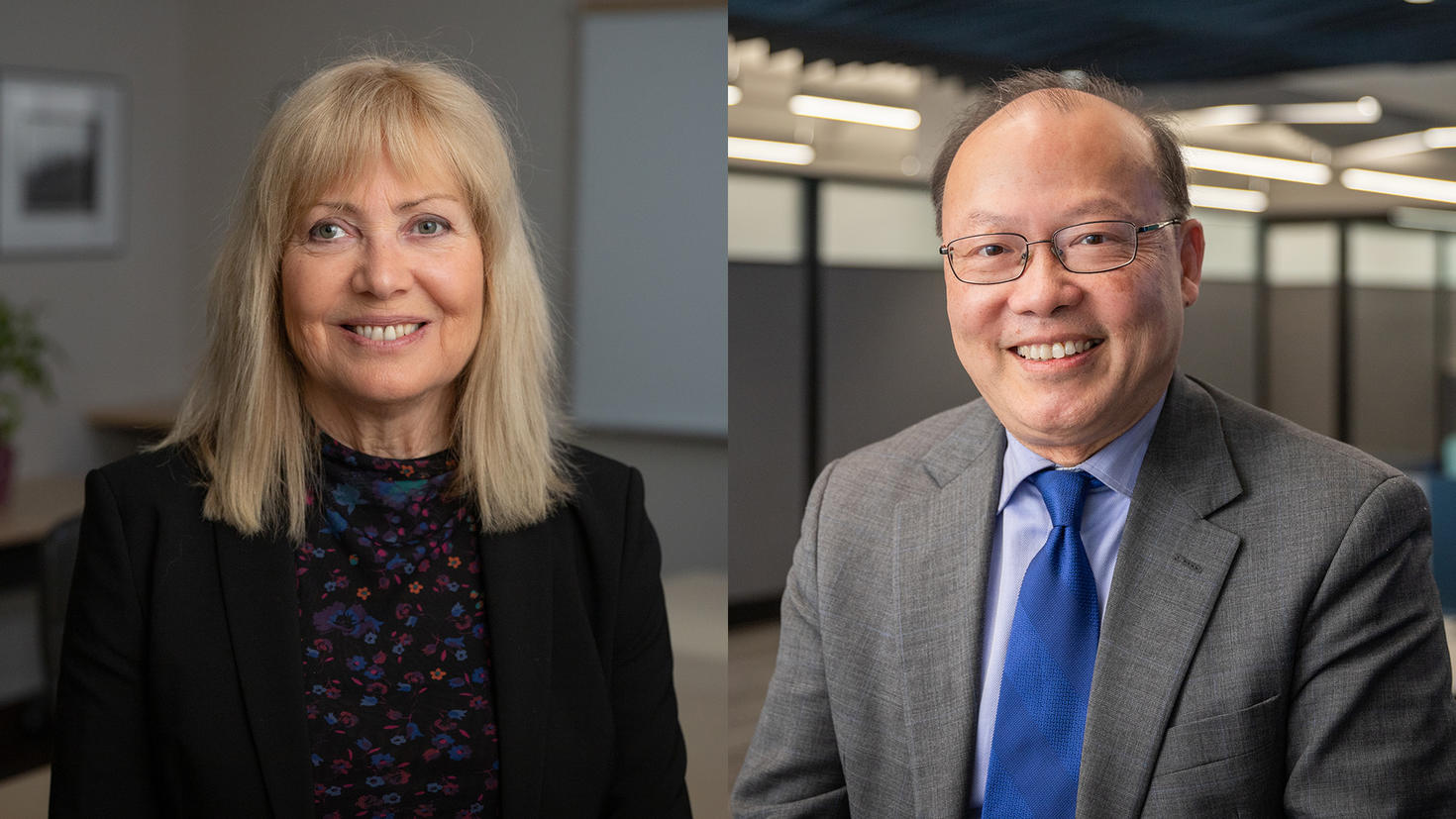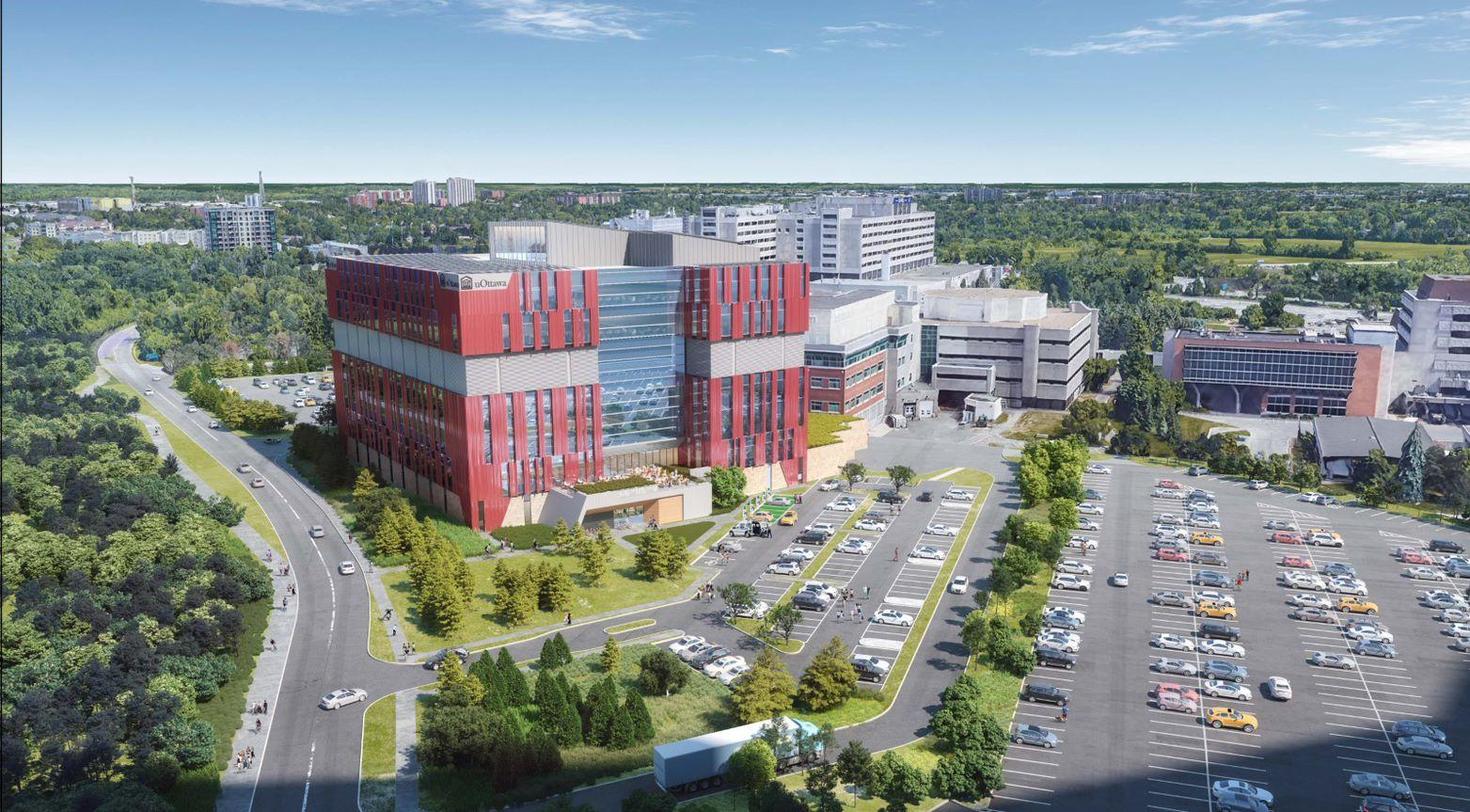“I have discussions with the CEOs of Canadian companies who question on a monthly basis whether they should be moving to the United States,” says Dane Bedward, CEO of NeuroBot Inc. and former senior vice president international for Genzyme Corporation.
With more than 30 years of experience in the global medical and life sciences sector, Bedward has expertise in commercializing medical advancements.
“I’m results-oriented and my passion is for the patient, and what we can do to improve their experience,” he says.
That’s why he’s joined the fundraising Council of Champions for uOttawa’s new Advanced Medical Research Centre (AMRC).
A new home for health innovation
Ground will be broken on the AMRC, the biggest investment in uOttawa history, at a special ceremony May 9. The new building will feature 350,000 sq. ft. of advanced research space, with a dozen state-of-the-art core facilities not found anywhere else in the region, including an imaging facility, a metabolomics core and a Flow Cytometry & Virometry core, among other features.
It will also house a health innovation hub dedicated to entrepreneurship and innovation. Bedward says this facility will prove essential to getting Ottawa’s next-generation health technologies and treatments to market.
“The AMRC is a good example of the understanding that, yes, we need to be able to get researchers to commercialize their intellectual property. But we also need to support them with the space and the equipment they need to make these discoveries. It’s quite expensive,” Bedward says. “You can’t do it from scratch by yourself.”
Dr. Jean-Simon Diallo can relate. He’s the CEO of Ottawa-based Virica, a biotech company manufacturing specialized products for researchers who use viruses to develop new medical treatments for cancers and genetic diseases and to create vaccines. Virica’s products have special properties that make drug manufacturing more efficient and cost effective for scientists, companies and, ultimately, patients.
The company has attracted international attention and is growing fast, perhaps too quickly for the Ottawa region.
“We’ve had multiple situations where we almost left. It happened in a few situations, mostly related to lab space. I couldn’t find lab space,” says Diallo.
At the time, Diallo says, the universities were not as open to sharing space with a startup.
“Ottawa is a very high-tech focused city when it comes to starting a business, especially, and not well developed in the life sciences. The culture and the setup are not conducive to the longer and more capital-intensive biotech life cycle. So, you’re either fully in the university being an academic, or you’re completely outside in a company. There’s no in-between,” Diallo says.
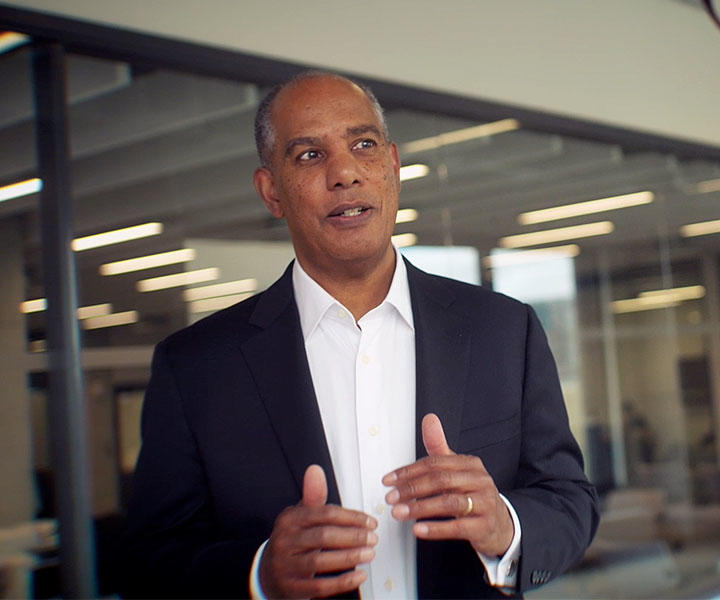
“...we need to be able to get researchers to commercialize their intellectual property. But we also need to support them with the space and the equipment they need to make these discoveries.”
Dane Bedward
— CEO of NeuroBot Inc.
Bridging discoveries to market
The AMRC intends to fill that gap by incubating next-generation health technologies and treatments. Scheduled to open in 2026, it will welcome hundreds of researchers and employees of uOttawa’s Faculty of Medicine, accelerator and incubator companies, and regional partners.
Diallo says the partnerships that will grow from the AMRC are overdue.
“There’s a lot of pressure for scientists like me, for example, to also be strong entrepreneurs. You need to know everything about starting a business from product marketing to human resources, finance and fundraising. But scientists are not trained this way. We don’t learn this through our PhDs and postdoctoral studies,” he explains.
Bedward echoes those sentiments.
“With the support that universities now are starting to give to their researchers with the intellectual property, I think we’re going to create that environment to keep them here,” he says with a smile.
As for the investment side of the equation, Bedward says he feels equally confident that patrons are developing a keen interest in Ottawa’s biotech and MedTech future.
“When I started as a member of the Capital Angel Network (the largest early-stage investor group in the National Capital Region) after coming back from the United States, I was the only person really interested in investing in life sciences therapeutic companies,” he recalls.
Bedward explains that many local investors had grown accustomed to shorter timeframes for returns from Ottawa’s high-tech sector. The AMRC represents a significant opportunity for investors to incubate and accelerate game-changing health-tech startups early in their development cycles.
“It’s time for members of Ottawa’s medical and life sciences community to take on some culture change of their own,” Bedward says. “We don’t blow our own horns enough. There’s so much grey matter here, but so many inventions that have come out of Canada get gobbled up and taken outside Canada.”
Diallo wasn’t interested in following that path. He blazed his own trail with support and lab space from organizations such as uOttawa, Invest Ottawa, Carleton University and the University of Ottawa Heart Institute, and investment from people such as Bedward.
He says the AMRC will provide huge opportunities for the next wave of Ottawa biotech entrepreneurs.
“If that space is not there, those companies will for sure leave or not launch at all. The next versions of Virica will not have a place to go,” Diallo says.
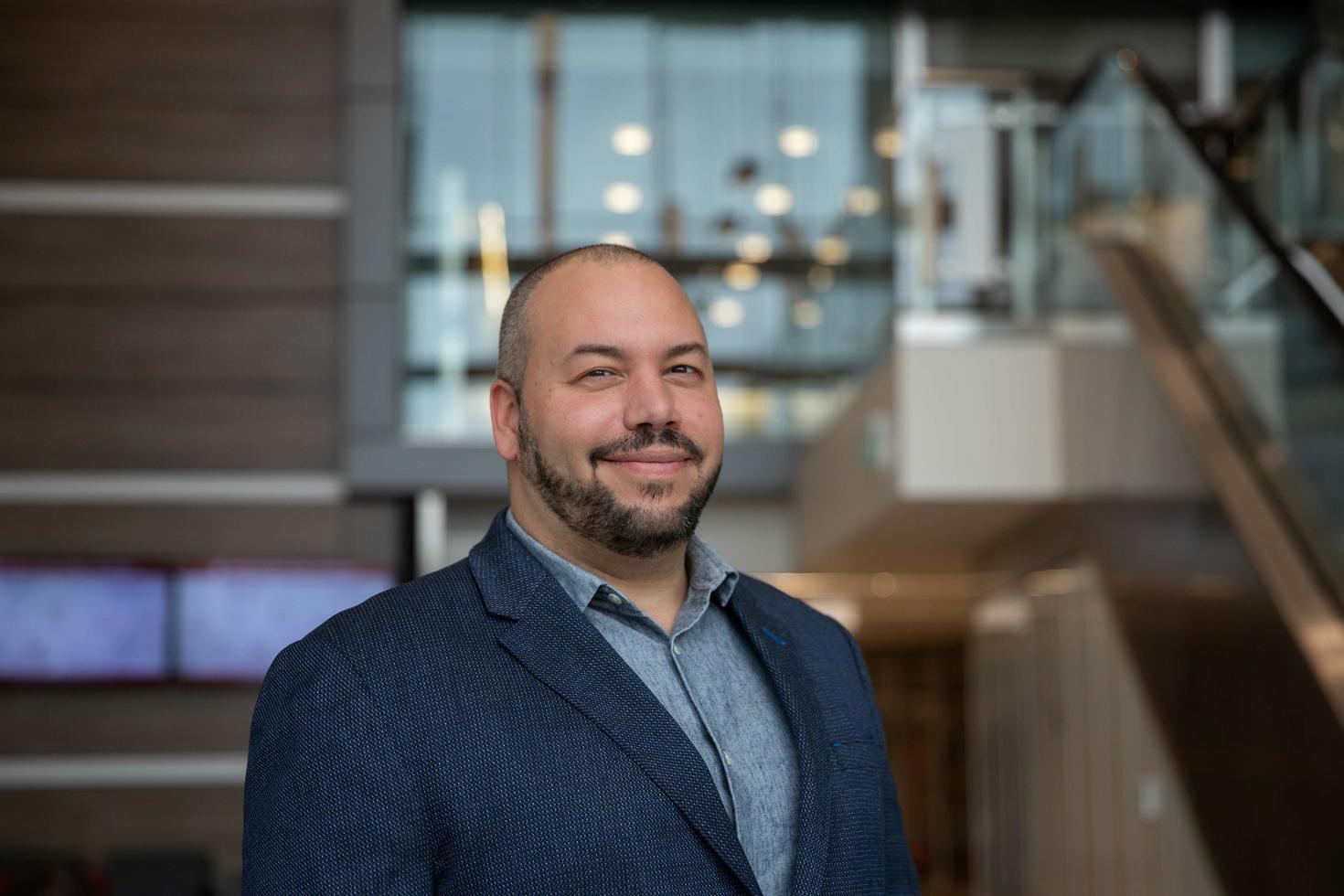
“If that space [AMRC] is not there, those companies will for sure leave or not launch at all.”
Jean-Simon Diallo
— CEO of Virica
Supporting the Canadian health-care innovation agenda
The Advanced Medical Research Centre will not only expand Ottawa’s capacity for health research and clinical trials, but also support the Canadian health-care innovation agenda.
“Commercialization of these critical technologies will ensure the much-needed longevity of this sector,” says Sylvain Charbonneau, vice president, research and innovation, at the University of Ottawa. “Moreover, the research that is supported and introduced into global markets will sustain it for generations to come.”
For more information on the AMRC and supporting Canadian research, health-care innovation and patient well-being, contact Jonathan Bodden, uOttawa executive director of corporate development, at jbodden@uOttawa.ca or 613-614-3571.
Make a difference by supporting the AMRC
Fuel Discovery — Accelerate Impact: Together we will find solutions to our most pressing health-care challenges.
Help accelerate innovation, commercialization and patient health.
